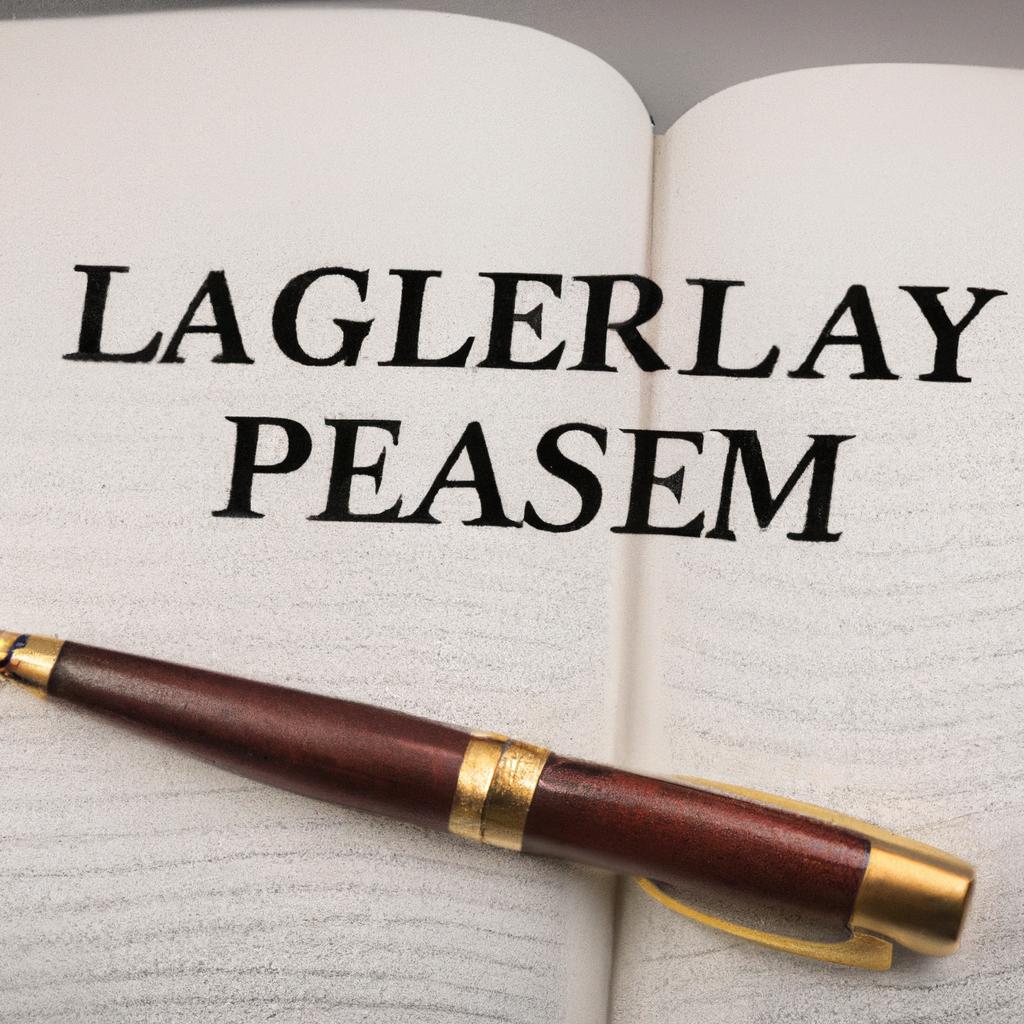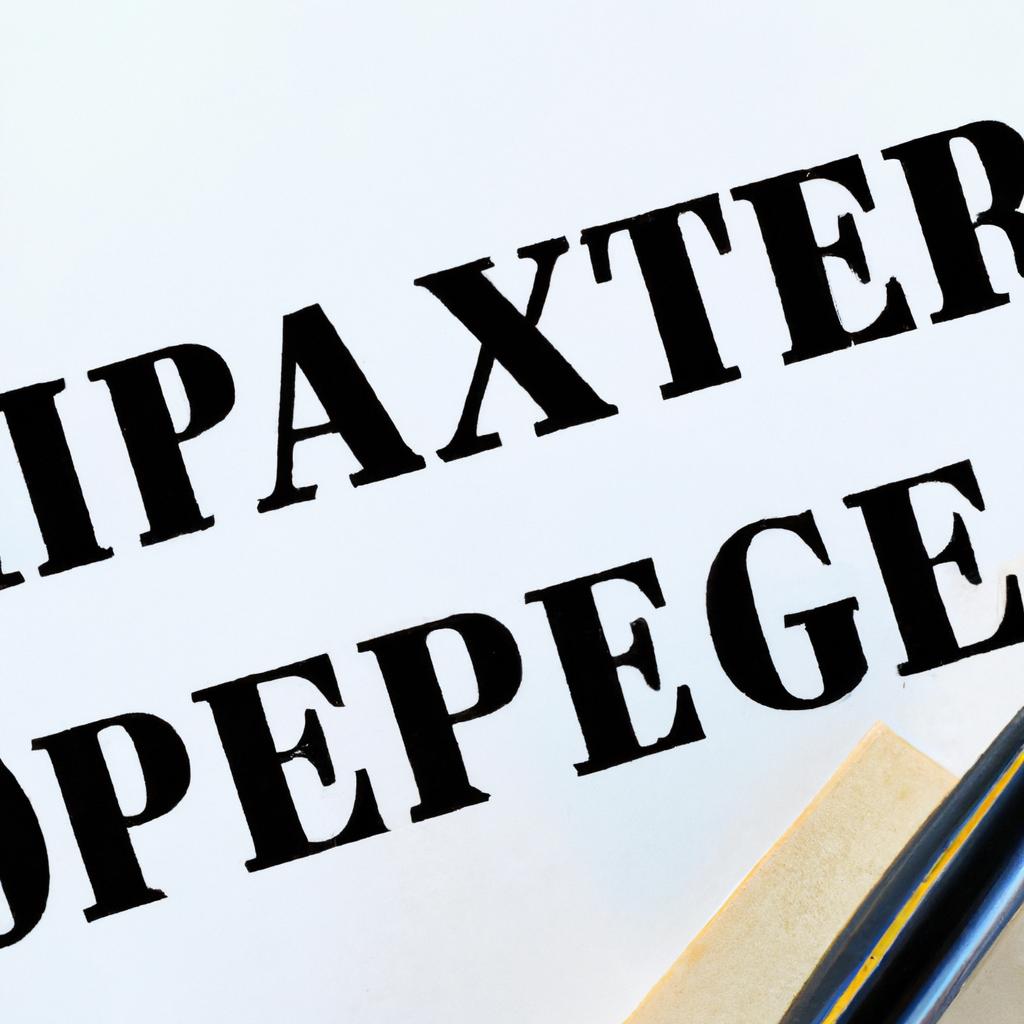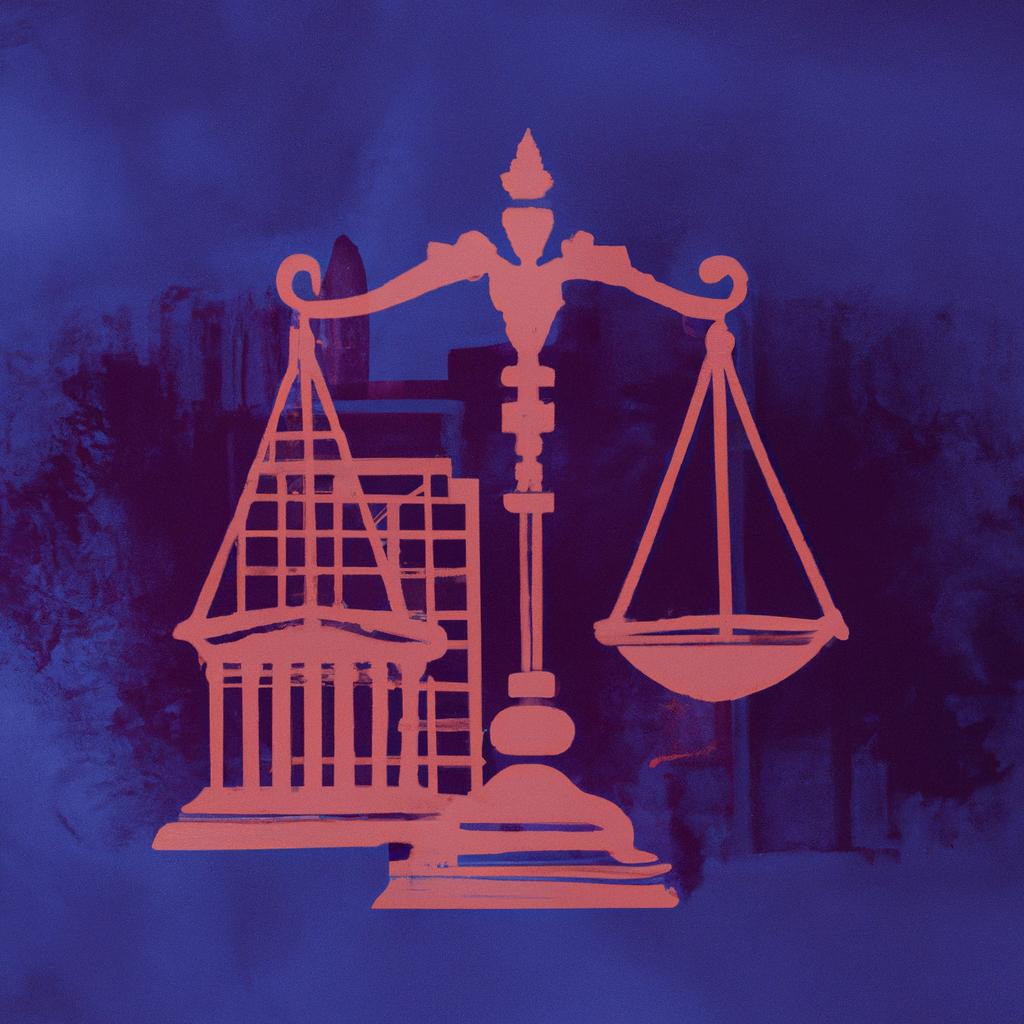In the intricate domain of estate law, navigating the complexities that arise when someone passes away is a vital undertaking. Understanding the legal implications and procedures that come into play when someone dies is paramount in ensuring a smooth and efficient transition of assets and responsibilities. At Morgan Legal Group, located in the heart of New York City, we specialize in estate planning, probate, elder law, Wills, and trusts, providing expert guidance and support during such pivotal moments. Join us as we delve into the intricacies of “cuando alguien fallece,” shedding light on the often daunting legal landscape that accompanies the loss of a loved one.
Understanding the Legal Process When Someone Passes Away
When someone passes away, there are important legal steps that need to be taken in order to properly handle their estate. Understanding the legal process during this difficult time is crucial to ensure that the deceased’s wishes are carried out and their assets are distributed according to the law. Here are some key aspects to consider:
Probate Process:
- Probate is the legal process through which a deceased person’s assets are distributed to their heirs and beneficiaries.
- The court oversees the probate process to ensure that the deceased person’s debts are paid and their assets are distributed in accordance with their Will or the law. - It is important to have a clear understanding of the probate process and the steps involved in order to navigate it successfully.

Navigating the Probate Process With Expert Guidance
When a loved one passes away, it is inevitable that their estate will go through the probate process. This can be a challenging and overwhelming time for families, as they navigate the legal complexities of distributing assets and settling debts. With expert guidance from our team at Morgan Legal Group, we can help you understand the probate process and ensure that your loved one’s wishes are carried out legally and efficiently.
Our experienced attorneys specialize in estate planning, probate, elder law, Wills, and trusts. We can assist you with creating a comprehensive estate plan to avoid the probate process altogether, or guide you through each step if probate is necessary. With our expertise and personalized approach, we can help alleviate the stress and confusion often associated with probate, allowing you to focus on honoring your loved one’s memory.

Ensuring a Smooth Transition of Assets After a Loved One’s Death
When a loved one passes away, it is essential to ensure a smooth transition of assets to the rightful heirs and beneficiaries. At Morgan Legal Group, we understand the emotional and legal complexities that come with the process of settling an estate. Our experienced team of attorneys is here to guide you through every step of the way.
From identifying and valuing assets to navigating the probate process, our knowledgeable lawyers are committed to protecting your interests and wishes. We can assist with drafting or interpreting Wills and trusts, resolving any disputes that may arise, and maximizing the value of the estate for the beneficiaries. Let us help you honor your loved one’s legacy with professionalism and care.

Preserving and Distributing the Estate in Accordance with New York Law
In New York, when someone passes away, their estate needs to be preserved and distributed according to state laws. This process, known as probate, can be complex and time-consuming, requiring careful attention to detail and compliance with legal requirements. At Morgan Legal Group, we specialize in guiding our clients through this process, ensuring that their loved one’s estate is handled with the utmost care and in accordance with all applicable laws.
During the probate process, assets are identified, debts are settled, and the remaining property is distributed to the heirs or named beneficiaries. Our team of experienced attorneys is well-versed in New York estate law and will work diligently to ensure that the estate is distributed fairly and efficiently. We understand the importance of preserving your family’s legacy and will work tirelessly to protect your loved one’s wishes and ensure a smooth distribution of assets.
Q&A
Q: What happens when someone passes away?
A: When someone passes away, there are a series of steps that need to be taken to handle their affairs and honor their memory.Q: What is the first thing that should be done when someone dies?
A: The first thing that should be done when someone dies is to notify their loved ones and arrange for their body to be taken care of.Q: What happens to a person’s assets when they die?
A: When someone dies, their assets are typically passed on to their heirs or beneficiaries as outlined in their will or determined by state law if there is no will.Q: How can someone honor the memory of a loved one who has passed away?
A: There are many ways to honor the memory of a loved one who has passed away, such as holding a memorial service, creating a memorial fund, or simply sharing stories and memories of the deceased.Q: How can someone cope with the loss of a loved one?
A: Coping with the loss of a loved one can be a difficult and emotional process. It is important to allow yourself to grieve and seek support from friends, family, or a therapist if needed.In Summary
As we navigate the complex emotions that come with the loss of a loved one, it’s important to remember that grieving is a unique and personal experience for each individual. Finding a way to honor the memories and legacy of those we have lost can provide some measure of comfort and healing. Whether through cherished traditions, acts of kindness, or simply holding space for our emotions, we can find solace in the connections we shared with the departed. As we continue on our own paths, may the memories of those we have lost guide us towards a deeper appreciation for the precious gift of life.
 Cuando alguien fallece, es un momento sumamente difícil y doloroso para todos aquellos que eran cercanos a él o ella. La pérdida de un ser querido nunca es fácil de afrontar, pero el proceso de duelo puede ser aún más abrumador si no se está preparado para enfrentarlo. Por ello, es importante conocer lo que sucede después de que alguien fallece y cómo podemos lidiar con ello de la mejor manera posible. En este artículo, hablaremos sobre qué sucede cuando alguien fallece y cómo podemos hacer frente a este momento tan difícil.
Cuando alguien fallece, es un momento sumamente difícil y doloroso para todos aquellos que eran cercanos a él o ella. La pérdida de un ser querido nunca es fácil de afrontar, pero el proceso de duelo puede ser aún más abrumador si no se está preparado para enfrentarlo. Por ello, es importante conocer lo que sucede después de que alguien fallece y cómo podemos lidiar con ello de la mejor manera posible. En este artículo, hablaremos sobre qué sucede cuando alguien fallece y cómo podemos hacer frente a este momento tan difícil. ¿Qué sucede cuando alguien fallece?
Cuando alguien fallece, suele haber una mezcla de emociones difíciles de manejar: tristeza, enojo, confusión. Pero es importante recordar que, aunque la persona que amábamos ya no esté presente físicamente, siempre llevará un lugar especial en nuestros corazones y recuerdos.
Sin embargo, además de las emociones, hay una serie de trámites que se deben llevar a cabo después de que alguien fallece. A continuación, detallaremos los pasos a seguir:
- Certificado de defunción
Lo primero que se debe obtener es el certificado de defunción de la persona fallecida. Este documento es esencial ya que, sin él, no se podrán llevar a cabo otros trámites necesarios. Por lo general, se obtiene en el registro civil o en el hospital donde la persona falleció.
- Planificación de los servicios funerarios
La familia o amigos cercanos deben encargarse de planificar los servicios funerarios, de acuerdo a las últimas voluntades del fallecido o de los deseos de la familia. Esto incluye la elección del lugar y tipo de sepultura, así como también los ritos funerarios y ceremonias religiosas.
- Notificación del fallecimiento
Es importante notificar a las personas y entidades pertinentes sobre el fallecimiento, como el empleador de la persona, las compañías de seguros y las instituciones financieras. Esto permitirá resolver asuntos como pensiones o liquidación de la herencia.
- Liquidación de la herencia
Si el fallecido dejó un testamento, se debe llevar a cabo el proceso de liquidación de la herencia. Este trámite legal puede ser complejo y requerir la ayuda de un abogado especializado.
- Cancelación de servicios y contratos
También es importante cancelar los servicios y contratos que la persona fallecida tenía activos, como servicios públicos, tarjetas de crédito, suscripciones, etc. Esto evitará gastos innecesarios en el futuro.
¿Cómo hacer frente a la pérdida?
Después de que alguien fallece, es normal sentir una gran cantidad de emociones abrumadoras. Cada persona experimenta el duelo de manera diferente, y no hay una forma correcta o incorrecta de sentir o lidiar con él. Sin embargo, aquí hay algunos consejos generales que pueden ayudar a sobrellevar la pérdida:
- Hablar con alguien sobre tus sentimientos
No intentes lidiar con el dolor de la pérdida por ti mismo. Habla con familiares y amigos cercanos sobre tus sentimientos, o busca el apoyo de un terapeuta o grupo de apoyo.
- Aceptar tus emociones
Permítete sentir todo lo que estás sintiendo, ya sea tristeza, enojo, culpa, miedo o cualquier otra emoción. No intentes reprimirlas, sino aceptarlas y procesarlas.
- Realizar actividades significativas
Participar en actividades que eran importantes para la persona fallecida, como una obra de caridad, un pasatiempo compartido o visitar un lugar especial, puede ser terapéutico y ayudarte a recordar a tu ser querido de una manera positiva.
- Tomar cuidado de tu salud
Durante el proceso de duelo, es importante cuidar de tu salud física y emocional. Duerme adecuadamente, come bien, haz ejercicio y no descuides tus check-ups médicos regulares.
Beneficios y consejos prácticos
Aunque es difícil verlo en el momento, la muerte de un ser querido puede también traer consigo algunos beneficios y enseñanzas valiosas. Entre ellos, aprender a valorar aún más la importancia de tus relaciones y del tiempo que pasas con las personas que amas.
Además, aquí hay algunos consejos prácticos para ayudarte a enfrentar el fallecimiento de alguien cercano:
- Organiza tus documentos importantes
Asegúrate de tener tus documentos importantes en un solo lugar bien organizado, para que sea más fácil para tu familia o amigos acceder a ellos en caso de que algo te sucediera a ti.
- Expresa tu amor
No esperes hasta que sea demasiado tarde para expresar tus sentimientos a las personas que amas. Hazles saber cuánto significan para ti en vida y no dejes nada pendiente.
Casos de testimonios y experiencias
Cada persona tiene una historia diferente y única con la muerte de un ser querido. A continuación, compartiremos algunos testimonios de personas que han afrontado la pérdida de diferentes maneras:
- “Después de perder a mi madre, no podía aceptar la realidad. Pero, poco a poco, aprendí que es importante expresar mis emociones y buscar ayuda cuando la necesito.” – Ana, 35 años.
- “Cuando mi abuela murió, creé un álbum de fotos con nuestros momentos favoritos juntas. Me ayudó a recordarla y sanar mi dolor.” – Carla, 28 años.
En conclusión, la muerte de un ser querido nunca es fácil, pero con el tiempo y el apoyo adecuados, podemos aprender a hacer frente a este proceso de duelo. Recuerda que es importante hablar sobre tus sentimientos y buscar ayuda en caso de necesitarla. También es valioso recordar las buenas memorias y lecciones que la persona fallecida nos dejó. Si te encuentras en esta situación, esperamos que este artículo te sea de ayuda y puedas encontrar consuelo y paz en medio de tu dolor.

